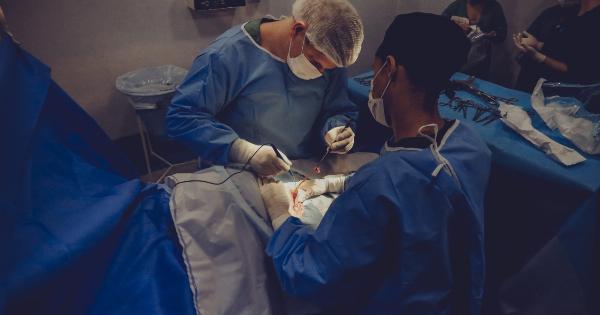When it comes to eye surgeries, finding the right ophthalmologist is of utmost importance. Your eyes are precious, and any surgery involving them should be entrusted to a highly skilled and experienced professional.
But how do you ensure that you choose the right ophthalmologist for your eye surgery? Asking the following questions can help you make an informed decision and ensure the best possible outcome for your procedure.
1. What is the ophthalmologist’s experience and qualifications?
One of the first questions to ask is about the ophthalmologist’s experience and qualifications. Find out how long they have been practicing and specializing in the specific type of eye surgery you require.
Inquire about their educational background, training, and any additional certifications they may have acquired. A reputable ophthalmologist will be transparent and happy to provide this information.
2. Are they board-certified?
Board certification indicates that an ophthalmologist has completed additional training and passed rigorous exams in their field. Ensure that the ophthalmologist you are considering is board-certified in ophthalmology.
This certification is a testament to their expertise and commitment to providing quality care.
3. What is their success rate with the specific procedure?
Ask the ophthalmologist about their success rate with the specific eye surgery you are considering. Inquire about the number of similar surgeries they have performed and the outcome of those surgeries.
A high success rate indicates the ophthalmologist’s proficiency and can give you added confidence in their abilities.
4. What technology and techniques do they use?
The field of ophthalmology continuously evolves, with new technologies and techniques emerging to improve surgical outcomes. Inquire about the technology and techniques the ophthalmologist utilizes in their practice.
Ensure that they are up-to-date with the latest advancements and that the equipment and procedures they use align with industry standards.
5. Do they have hospital affiliations?
Ophthalmologists with hospital affiliations can provide care within a hospital setting if necessary. This is particularly important for complex eye surgeries that may require access to specialized facilities or resources.
Check if the ophthalmologist has affiliations with reputable hospitals in your area.
6. What is their approach to patient care?
Each ophthalmologist may have a slightly different approach to patient care. Ask about their communication style, how they involve patients in the decision-making process, and the level of support they provide before, during, and after the surgery.
Understanding their approach to patient care can help you determine if they align with your expectations and preferences.
7. Can they provide testimonials or referrals?
Request testimonials or referrals from previous patients who have undergone similar eye surgeries with the ophthalmologist.
These testimonials provide first-hand accounts of the patient experience and can give you insights into the surgeon’s skills, professionalism, and post-surgery care. It is also helpful to seek recommendations from your primary care physician or optometrist.
8. What are the potential risks and complications?
Like any surgery, eye surgeries carry some risks and potential complications. The ophthalmologist should discuss these risks with you during the consultation and provide you with detailed information.
Ask about the success rates, rare complications, and potential side effects associated with the procedure. Being aware of the risks allows you to make an informed decision.
9. What is the cost and insurance coverage?
Understanding the cost of the surgery and insurance coverage is crucial. Inquire about the overall cost, including pre- and post-operative care.
Additionally, find out if the surgery is covered by your insurance plan and what portion, if any, you might be responsible for. It’s important to have clarity on financial matters before proceeding with the surgery.
10. What is their post-operative care plan?
Post-operative care plays a vital role in the success of your eye surgery. Understand the ophthalmologist’s post-operative care plan, including follow-up appointments and any specific guidelines you need to follow during the recovery period.
Clear instructions and proper monitoring can contribute to optimal healing and a smooth recovery process.




























